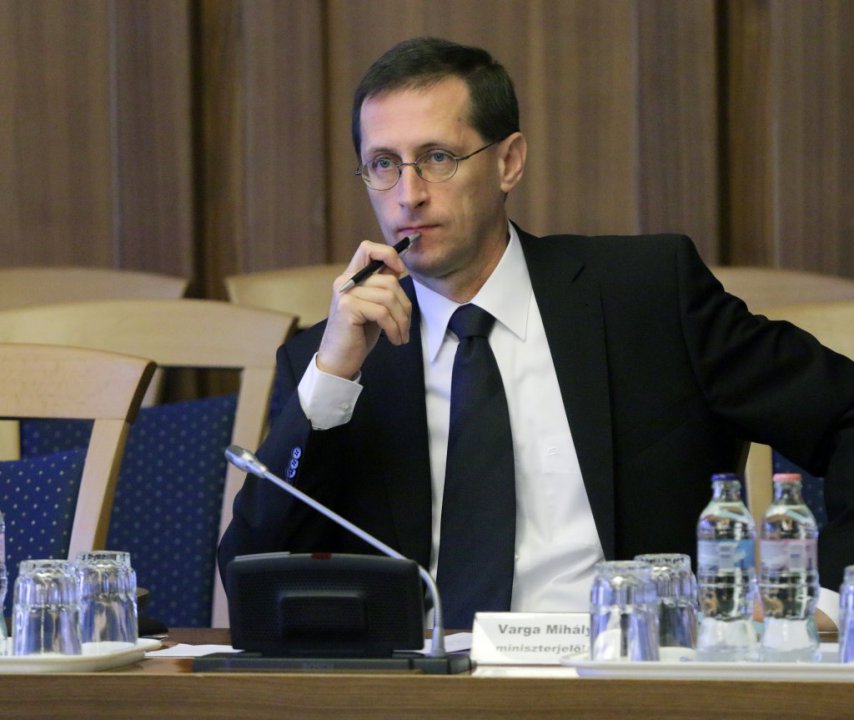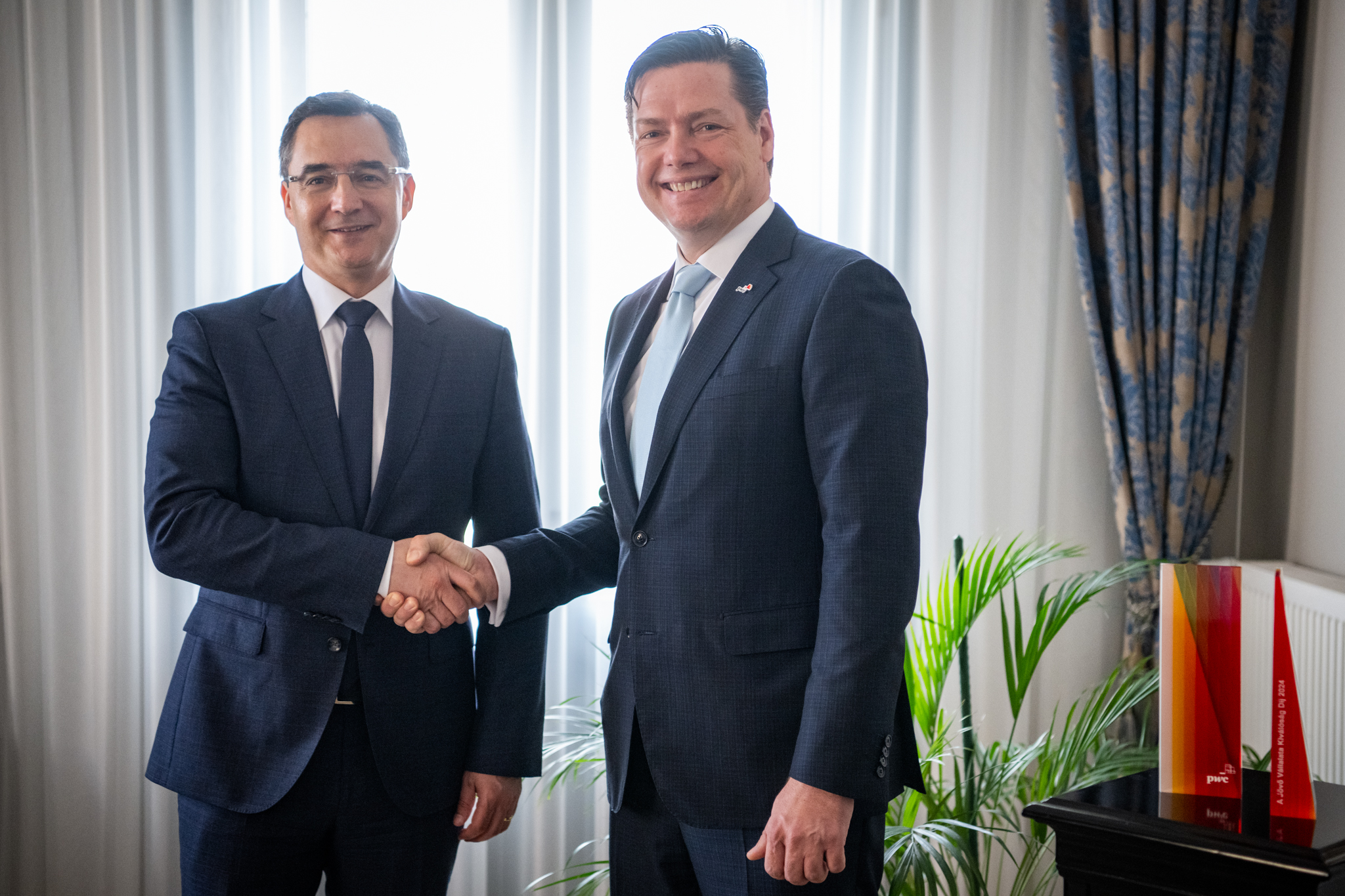Ministerial nominees present their priorities

Several ministerial nominees outlined their plans before parliamentary committees this week. These include further cutting taxes, bringing more foreign investments to Hungary, and the expansion of irrigated farmlands, national news agency MTI reported.
Mihály Varga, staying in cabinet but with a new job title.
Hungaryʼs new government aims to reduce taxes further for private individuals as well as businesses, Mihály Varga, the candidate for Finance Minister (remaining in his post, but with a change of job title from Minister for National Economy), said in a hearing before a parliamentary committee on Tuesday.
The new governmentʼs economic policy goals will remain unchanged, and the foundation for these is establishing a labor-based society, Varga told the Budget Committee. The cabinet wants to achieve full employment, he added.
The government targets annual GDP growth of around 4% until 2022, Varga said. It also wants to balance the budget and continue to reduce state debt relative to GDP, he added. He noted that the government aims to achieve a qualitative improvement in competitiveness in 2018-2022, adding that Hungaryʼs competitors are to be found here in the CEE region.
Answering questions, Varga said the time and conditions of euro adoption must be considered carefully, adding that the adoption of the single currency is not a condition to competitiveness, citing the example of the Czech Republic.
As for labor shortages, Varga said that if promising investments have to be cancelled because vacancies cannot be filled with Hungarian workers, steps must be taken. This is why, for several years, the Ministry for National Economy has been setting the number of permits that can be issued to foreign workers; there are currently about 60,000 vacancies in the Hungarian economy, he added.
Foreign affairs, trade and justice
Foreign affairs and trade will remain in the same ministerial portfolio, Péter Szijjártó, the nominee to retain the post of Minister of Foreign Affairs and Trade, said in a hearing before Parliamentʼs Economic Committee on Tuesday.
Hungaryʼs economic growth path is linked to external economic developments so the ministry will continue to spur foreign investments, he said at the hearing. Between 2014 and 2017, there were 294 investment projects bringing in EUR 9.8 billion of new funds, and now there are 132 projects waiting to be managed.
Szijjártó said international energy negotiations and cross-border development projects will be added to the portfolio of the ministry, as well as the running of the Information Office, Hungaryʼs civilian intelligence agency focused on intelligence gathering primarily abroad.
László Trócsányi, the nominee for Minister of Justice in Hungaryʼs new government, said in another parliamentary committee hearing on Monday that seeing through the establishment of a Supreme Administrative Court was one of his main goals.
As justice minister in the previous Fidesz-KDNP government, Trócsányi pressed for introducing such a court, which would handle disputes over the exercise of public power, but the Constitutional Court ruled against legislation on the courtʼs establishment, arguing it should have required a two-thirds majority for passage.
Trócsányi told the committee that he was proud of the establishment of the eight regional Administrative Courts, but regretted that a compromise had not been reached on the establishment of the Supreme Administrative Court.
Innovation and agriculture
László Palkovics, the nominee for minister in charge of the new innovation and technology portfolio in Hungaryʼs new government, said the rate of Hungarian ownership in value-added businesses must be increased during hearings before parliamentary committees on Monday.
Although 97% of the companies in the country are Hungarian-owned, the value added they generate still does not match that of the 3% of companies that are multinationals, Palkovics noted. Hungarian companiesʼ productivity must be boosted through innovation and the use of new technologies, he added.
Palkovics said the new Ministry for Innovation and Technology would include in its portfolio energy and climate policy, infocommunications, transport and sustainability. It will also take over vocational and continuing education, which was under the auspices of the Ministry for National Economy in the previous government, he added.
István Nagy, the nominee for Minister of Agriculture in Hungaryʼs new government, outlined priorities for the sector in a hearing before Parliamentʼs Agriculture Committee on Monday. Nagy said some 50,000 fostered workers (low-paid workers on government work schemes) could be shifted to the private sector, where they could find jobs in agriculture, easing the labor shortage in the sector.
The area of farmland that is irrigated needs to be increased, Nagy noted. Just 103,000 hectares are irrigated at present, while there are permits to irrigate double that area, and there is demand to irrigate 400,000-500,000 hectares, he added.
Capacity of food processors should be boosted, the nominee said, adding that the fact Hungarian soy farmers must ship their crop abroad to be processed, only for it to be delivered back to Hungary, is untenable.
Nagy urged a redistribution of risk, arguing that at present, farmers carry all of the risk, and are still sometimes forced to sell their product under cost. Risk in the sector should be distributed between farmers, processors and traders, he added.
SUPPORT THE BUDAPEST BUSINESS JOURNAL
Producing journalism that is worthy of the name is a costly business. For 27 years, the publishers, editors and reporters of the Budapest Business Journal have striven to bring you business news that works, information that you can trust, that is factual, accurate and presented without fear or favor.
Newspaper organizations across the globe have struggled to find a business model that allows them to continue to excel, without compromising their ability to perform. Most recently, some have experimented with the idea of involving their most important stakeholders, their readers.
We would like to offer that same opportunity to our readers. We would like to invite you to help us deliver the quality business journalism you require. Hit our Support the BBJ button and you can choose the how much and how often you send us your contributions.










